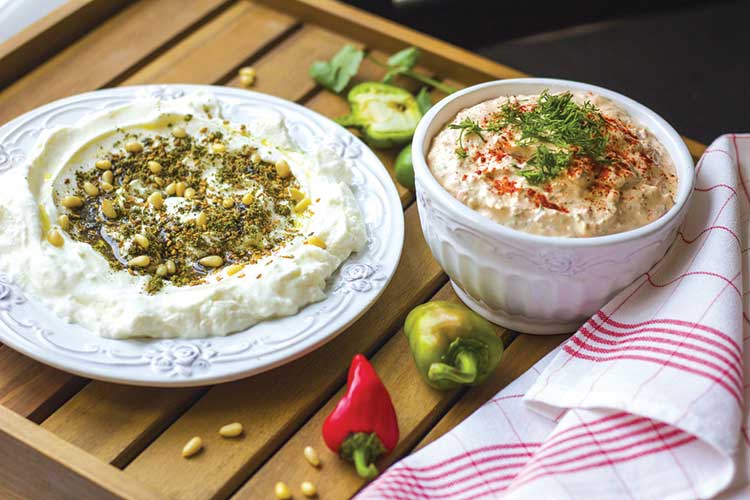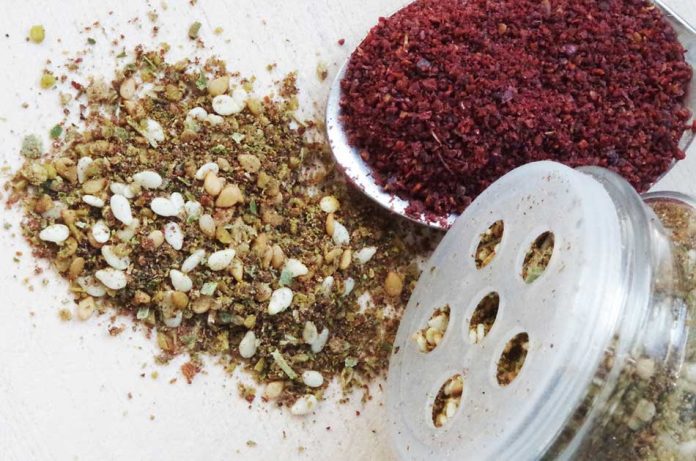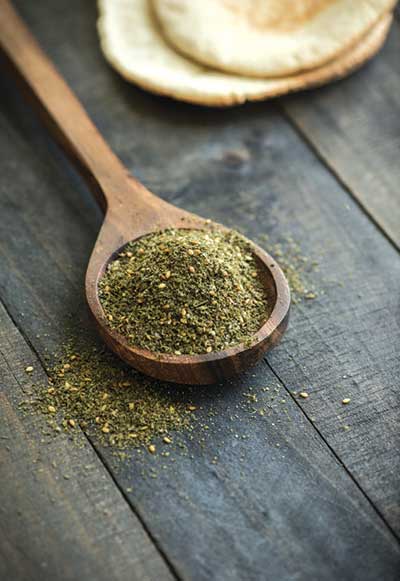From pita bread toppings to dipping sauces, Za’atar, the household condiment in this part of the world, is a Ramadan favourite, with many a traditional dish finding a dash or more of its herbal richness. It is an aromatic blend of toasted sesame seeds, dried wild thyme, dried marjoram and sumac. The combinations and permutations could change depending on the region or the skills of the cook. Generally speaking though, it is a pungent olive green mix. It has been a staple of Middle Eastern cuisine for centuries. In recent years it has found popularity in Mexican dishes too and is set to woo other cuisines from around the world.
Although it is most commonly used as a topping on flatbread or pita bread, it is completely versatile and has found use in a variety of culinary presentations. Its tangy and pungent flavours have made it a convenient accompaniment with a variety of breads, as well as a main flavouring item for meat varieties and even seafood; many also use it as a flavouring agent for hummus. The dried herb is moistened with olive oil to work as a spread on breads and infuse its special aroma to the mundane bread.
On the health front, the herbal blend is said to improve immune system, boost skin health, strengthen bones, increase circulation, soothe inflammation, boost energy and improve memory, in addition to a host of other benefits. What makes it convenient to use in everyday cooking is its easy availability in this part of the world.
If you are new to the ingredient and are tempted to give it a try, here is an easy recipe to get started.
Labneh with Za’atar
Ingredients:

- 1 garlic clove, finely grated
- 2 cups labneh or plain, whole-milk Greek yoghurt
- Kosher salt
- 2tbsps olive oil
- 1tbsp za’atar
- Salt to taste
- Pita (for serving)
Method:
- In a medium bowl, mix the grated garlic and labneh. Season with salt.
- Heat the olive oil in a skillet over medium heat.
- Stir in the za’atar and immediately remove from heat. Let cool.
- Drizzle the za’atar infused oil over labneh mixture and serve with warm pita.


